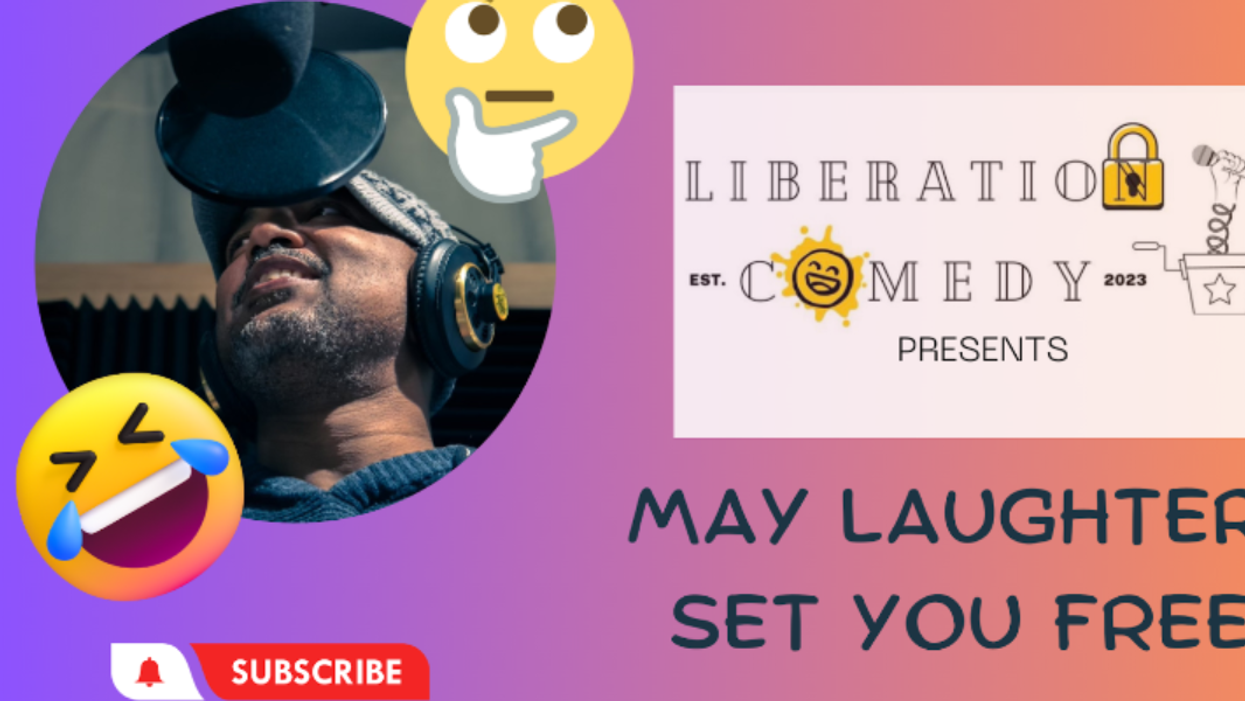Pedro Silva is the Founder of Liberation Comedy and Director of Engagement for YOUnify. Nevins is co-publisher of The Fulcrum and co-founder and board chairman of the Bridge Alliance Education Fund.
Laughter is the embodiment of depolarization. Just consider that in order for something to evoke laughter, it has to both have the capacity to hold tension and release tension at the same time. Like some kind of cognitive dissonance yoga, laughing requires one to hold a posture long enough to realize the benefits of the subsequent release. That’s why many folks in the bridging movement have begun to explore the power of laughter to bring people together across differences.
It’s no secret that pop culture in America has amazing healing and connecting powers. Throughout history, we’ve seen how artists, entertainers, athletes, and creators of every kind invite us into a space of transcendence that leads to connectivity. When harnessed, we see that when we join people together their energy for good can be amplified and scaled.
Toward that end, Liberation Comedy (LibCom), a brand new comedy concept founded by former pastor Pedro Silva, who currently works for a non-profit organization YOUnify as the director of Engagement, has launched an effort to use laughter as a scaffolding for building social cohesion. Liberation Comedy is based on the principle that comedy is an effective tool to bring people together through listening and laughing their way into embracing our common humanity.
In this time of social media and the divisive way that many of us use the internet, comedy can help us realize the absurdity of the “us versus them" mentality in our country and understand that we’re all in this together. To quote comedian critic Ronald K.L Collings:
“Comedy can be erudite or entertaining, or both, and yes, it can be rude and ridiculous, just as life itself can be. But in its finest moments comedy is the enemy of fanaticism, the foe of tyranny, the adversary of strident know-nothings, the nemesis of the pompous, and the friend of skepticism in an overconfident world. Then again, sometimes comedy is no more than the source of a full belly laugh.”
The hope of LibCom is that through the power of raucous laughter, we can drown out the voices that divide us as a nation by turning the rhetoric down a notch, listening and laughing more together and eventually hating less. Ultimately the goal is to harness the positive power of comedy to support constructive debate and encourage people to engage with people who think differently.
Liberation Comedy, if channeled responsibly, can be one component of pop culture along with music, theater, poetry, and other art forms to reach people’s souls so we can engage them to join in grassroots movements that scale and amplify our victories and advance our values for lasting impact.
To hear more about Pedro’s thoughts on the power of comedy, check out this post entitled, If We Can Laugh Together, Maybe We Can Last Together.
Click here to enjoy Liberation Comedy’s inaugural stand up set, “May Laughter Set You Free,” featuring Pedro Silva.

















 "On the Frontlines of Democracy" by Nonprofit Vote,
"On the Frontlines of Democracy" by Nonprofit Vote,

Trump & Hegseth gave Mark Kelly a huge 2028 gift